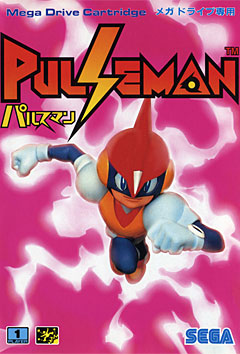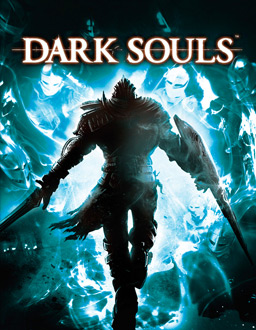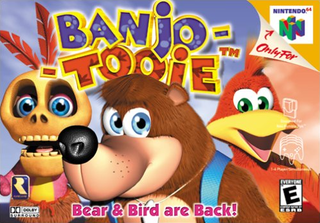50# Axiom Verge

Like the history of most indie games developed by a very small group of persons (or in this case, a single one), Axiom Verge took a very long time to finally be released, but it delivered on being a fulfilling Metroid experience that was lacking in the market since the release of Zero Mission, as the sci-fi setting was left sort of untouched by the genre and most opted for something more akin to how Symphony of the Night played. I can’t say I found the game to be quite on par with the best of 2D Metroid due to a few confusing moments in how to progress and the story being frankly too abstract for me, but it still offered some original takes on the typical upgrades from these games (my favorite being outright glitching through walls instead of finding some weapon that destroys these) and it actually offers better rewards for going out of your way to explore every nook and cranny in a map, instead of finding the 50th missile expansion you probably won’t need, this game offers gives different weapons if not outright upgrades to your stats (not just limited to HP like its inspiration source). Maybe a revisit is due to see if the game has improved over the years, but as it is, I think it’s comfortable being the gateway to the top.
49# Shining Force Resurrection of the Dark Dragon

I believe Shining Force might be the first game I’ve played with a larger narrative compared to your average title from the 90’s and my first foray into the turn based, grid style strategy games. It has a fairly average but still memorable fantasy tale with a large cast of cool looking characters and it’s a pretty big adventure, reaching about 20 hours of playtime by the end of the whole thing, which sorta made it impossible for me to finish as a kid as I relied on an emulator that couldn’t save games for whatever reason. The GBA seems to have a few divisive spots with fans, and I’ll agree the character potraits lost something when updated barring a few exceptions, but I appreciate giving the characters backstories through the tavern besides the new content added at the end of chapters 1-3, besides being what allowed me to finally finish the thing when I learned that it existed, so that makes it superior in my book. I used to hold this game in much higher regard, but Fire Emblem has sorta soured that, being generally a much more rewarding and entertaining experience. Still, nostalgia and a ridiculous amount of replays make this one hold a special place in my heart.
48# Megaman X

Classic Megaman never did much for me, but X changed that being a generally much faster paced game with a fantastic set of weapons to mess around with, new memorable baddies in form of the mavericks taking shapes of robotic animals and some very fun level designs that rewarded exploration with a bunch of neat upgrades. I also really love the idea of stages being altered depending on whether you defeated others previously or not, spicing up the potential ways to tackle the game on revisits. It’s a bit unfortunate the follow ups never quite reached the same peaks or properly evolved this formula, while some still proved entertaining, the formula got stale much more quickly compared to its classic counterpart. Still, maybe it’s a testament on how good the first X was that Capcom simply never quite reached the same magic it had with its multiple sequels.
47# Contra Hard Corps

Speaking of the japanense version here because man this game feels borderline impossible on the american release. Hard Corps is bar none the best of the 90’s Contras, offering some very challenging run and shoot segments with enemies that feel like they’re on steroids with the speed they move around and the numbers they come up with, but what really set this game apart were the multiple characters, each with their own unique set of weapons, and multiple pathways to proceed to. It also cut the top view stages from 3, so that instantly makes it better in my book. It’s an adrenaline heavy game in the best sense possible.
46# Pulseman

Before Gamefreak made nothing but Pokemon, they had some interesting history developing videogames, among the most noteworthy of them being the originally Japan only Pulseman exclusive to the Genesis/Megadrive, kind of hard to believe looking back. While visually it might scream the same Astro-Boy vibes Megaman did (and honestly the story isn’t earning any awards), I find the mechanics of Pulseman to set it apart from almost any platformer of the time. You don’t get any sort of powerups, instead you rely on your electric abilities, which work differently depending on how charge Pulseman is, and besides offering offensive capabilities, the volt tackle has some fun interactions with the environment that become neccesary to progress through the game as you move along (mostly for ricocheting against walls and travelling through cables). Visually it’s a treat, although sometimes the computer world stages can become a little to draining for the eyes. I feel I’m not doing the game much justice, but it’s easily among the best platformers of the Genesis.
45# Castle Crashers

I’m honestly not too fond of beat em ups anymore, I feel most of them feel pretty monotonous and clunky when going back to them, with Golden Axe being one of the worst offenders in this regard, and these criticisms being a big part as to why I really couldn’t care for the Scott Pilgrim game that people bemoan for a re-release after being delisted from PSN/Xbox Live. Castle Crashers however is an exception, as it feels a lot more fluid to control and implements RPG elements in a simple yet effective manner, besides offering loads of replayability thanks to the unlockable characters. It’s not quite the perfect experience as some enemies just take too long to beat, some stages drag on and the whole game could have lasted a good 30-60 minutes less and it’d be more enjoyable, besides having lots of playable characters simply being reskins without even attempting unique spell combinations to make them stand out from the rest so the replayability might have been oversold on my end, and the sense of humor is quite frankly gross. Still, even with these problems, I’ve played this game alone and with friends so many times once I got my PS3 to not consider it among the most memorable games of the last generation.
44# Dark Souls

I didn’t really like Demon’s Souls when I played it, the difficulty and progression never really hit with me and the lore of the game felt really disjointed to make anything all that interesting out of it, even with the many write ups online theorizing what might have happened in that decaying world. Dark Souls isn’t that mechanically different, so you’d think the same problems would arise here, but something about it’s more open world made it more enjoyable to progress through for me, besides having a far more enjoyable magic system compared to its predeccesor (although this still has some flaws to it). It also has a far more realized world building that, while still not the easiest to grasp for a simple minded fellow like me on their own, made for something far more enjoyable in its own depressing way compared to its predeccesor. Progression is far easier to achieve thanks to the modified bonfire system, and upgrading your own stats and equipment feels better implemented compared to the hub in Demon’s Souls, making the experience all the easier to get into. It still has a few areas I absolutely don’t look forward to when I feel like replaying it, most notably Blight Town and the Giants Tomb, but the level design feels generally improved as well. I don’t quite agree with the notion that Dark Souls is this modern masterpiece with little to no flaws that tackles challenge perfectly, but it still made for a highly entertaining experience. I have yet to play the final entry in the series (or any of its spiritual succesors), the DS2 really didn’t reach the same heights despite having a few improvements in QoL, balance and options given to the player. Also the co-op is a lot better than in Demon’s Souls.
43# Outland

Carrying on with lesser known Metroidvanias we have Outland, a game with a very distinctive art direction and a strage hybrid with Ikaruga’s color swapping mechanic and bullet-hell like segments. That in itself already makes it distinct enough, but something about the more primeval setting also makes it pretty unique alongside the powerups that are more designed around the overcoming the amount of hazards rather than mobility extensions (although these are still present). Its bosses are all pretty cool too, offering a fair amount of different gimmicks and evolving patterns on their phases, although they can go on for a little long.
42# Banjo-Tooie

Tooie is quite literally a bigger game than its predeccesor, with larger levels, some fairly long quests, more bosses, more power ups and a much larger length. Not all of these neccesarily equal for a better product, but it feels like what a proper sequel should do, extend over the original ideas while fixing the problems present, this might be an obvious statement to make, but with how derivatively similar some of these turned out both before and nowadays (look no further than the numbered Megaman series in the 90’s or the never ending amount of official sports games). Tooie got rid of lives entirely and now made notes proper collectibles rather than the weird score based system of the original (despite that they were still needed to progress), the overworld is also far easier to traverse through thanks to the warp pipes having useful positionings and just being more visually distinct compared to Grunty’s cave, but what I enjoyed the most was the concept of interconnected worlds, it really made the whole place feel more alive and helped Banjo have more of an identity compared to Kazooie being a Mario 64 clone (albeit a far more polished one). It’s not perfect as the pacing of the game can be pretty frustrating in some stages (with Grunty’s Industries probably being the worst offender) and the first person segments just aren’t fun to go through, but despite these I still greatly enjoyed my time with it, even if maybe playing with a guide might make it more enjoyable than going completely blind.
41# Breath of Fire IV

While the PS1 might be known as an RPG machine, it doesn’t really have many of my favorites, with some regarded classics making my head scratch on why they’re so beloved in the first place (I’m looking at you Grandia), but Breath of Fire IV stood out when I went through a curious phase on the genre. The combo like system feels very appropiate for a game published by Capcom and the game is quite a sight to behold with its spritework, but my favorite part its actually the story, particularly how we’re swapping perspectives between the protagonist during the current events of the game and the antagonists past when he was on the rise of becoming the tyranic emperor he’s known for nowadays, it really made the whole narrative that much memorable looking at things through the glasses of the villain, which I’m not sure if it’s something that’s even done that commonly nowadays even. There’s some archaics elements that are sorta to be expected considering the time of release (with the camera being my least favorite one as it makes traversing through some towns a bigger annoyance than it should be), but they aren’t enough to hurt the overall experience.
I think Mega Man X was exactly what the franchise needed at that moment in time – it breathed new life into a series that was really beginning to grow stale and repetitive, introducing a swath of new features without losing what made the series so appealing in the first place and without making past installments look like half-formed prototypes.
And Dark Souls is probably the single most influential game of the 2010s. Developers really seemed to hesitate making difficult games until Dark Souls proved it could work. I think it’s because in the past, a lot of games were difficult as a result of bad game design choices (i.e. making you run through a gauntlet just to have another chance of redoing the part you messed up). Meanwhile, Dark Souls demonstrated how to make games difficult without making them unfair, which was really a concept alien to most developers at the time.
LikeLike
Indeed, it was a fitting jump for the next generation of consoles as well having a brand new Megaman, it’s too bad the series quality is even more inconsistent than any other MM.
And Dark Souls certainly influenced a lot of games design choices after its release, very much evident withh the likes of Nioh and indie games like Dead Cells and Hollow Knight taking notes on a lot of its ideas or themes. It’s just unfortunate journalism treats anything with some degree to challenge = Dark Souls, as there’s different approachs to this end (or now the controversy over games with no difficulty selection).
LikeLiked by 1 person